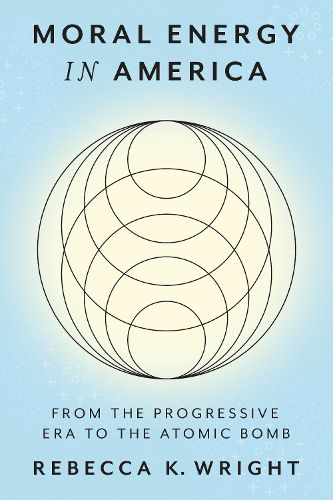Readings Newsletter
Become a Readings Member to make your shopping experience even easier.
Sign in or sign up for free!
You’re not far away from qualifying for FREE standard shipping within Australia
You’ve qualified for FREE standard shipping within Australia
The cart is loading…






How a distinctly American way of thinking about energy shaped US culture and society from the Progressive Era to the atomic bomb.
In Moral Energy in America, Rebecca K. Wright offers an illuminating exploration of how the concept of energy shaped American thought, culture, and politics throughout the first half of the twentieth century. This essential history traces how politicians, sociologists, geographers, urban planners, economists, and intellectuals adopted the idea of energy to bolster their social programs and visions of the future through distinctive energy imaginaries.
Energy was not a stable concept in the period, and it appealed to writers and advocates across the political and cultural spectrum. While medical practitioners and social workers interwove energy into discussions of race, immigration, youth, and crime, mainstream political campaigns appealed to the public by drawing energy into political rhetoric. Wright positions energy at the heart of key intellectual debates of the period, such as the Bourne-Dewey confrontation over America's role in World War I and the rise of technocratic ideas that envisioned energy as a new metric for societal progress.
In a thirty-year era that shook the foundations of American democracy-a period punctuated by the Great Depression, the rise of communism and fascism abroad, two world wars, and the atomic bomb-energy became a key metaphor through which to understand major transformations in American society. Wright demonstrates how energy's many meanings transcended material and scientific definitions to influence everything from racial theories to economic policies, and ultimately played a pivotal role in molding the American moral landscape.
$9.00 standard shipping within Australia
FREE standard shipping within Australia for orders over $100.00
Express & International shipping calculated at checkout
How a distinctly American way of thinking about energy shaped US culture and society from the Progressive Era to the atomic bomb.
In Moral Energy in America, Rebecca K. Wright offers an illuminating exploration of how the concept of energy shaped American thought, culture, and politics throughout the first half of the twentieth century. This essential history traces how politicians, sociologists, geographers, urban planners, economists, and intellectuals adopted the idea of energy to bolster their social programs and visions of the future through distinctive energy imaginaries.
Energy was not a stable concept in the period, and it appealed to writers and advocates across the political and cultural spectrum. While medical practitioners and social workers interwove energy into discussions of race, immigration, youth, and crime, mainstream political campaigns appealed to the public by drawing energy into political rhetoric. Wright positions energy at the heart of key intellectual debates of the period, such as the Bourne-Dewey confrontation over America's role in World War I and the rise of technocratic ideas that envisioned energy as a new metric for societal progress.
In a thirty-year era that shook the foundations of American democracy-a period punctuated by the Great Depression, the rise of communism and fascism abroad, two world wars, and the atomic bomb-energy became a key metaphor through which to understand major transformations in American society. Wright demonstrates how energy's many meanings transcended material and scientific definitions to influence everything from racial theories to economic policies, and ultimately played a pivotal role in molding the American moral landscape.